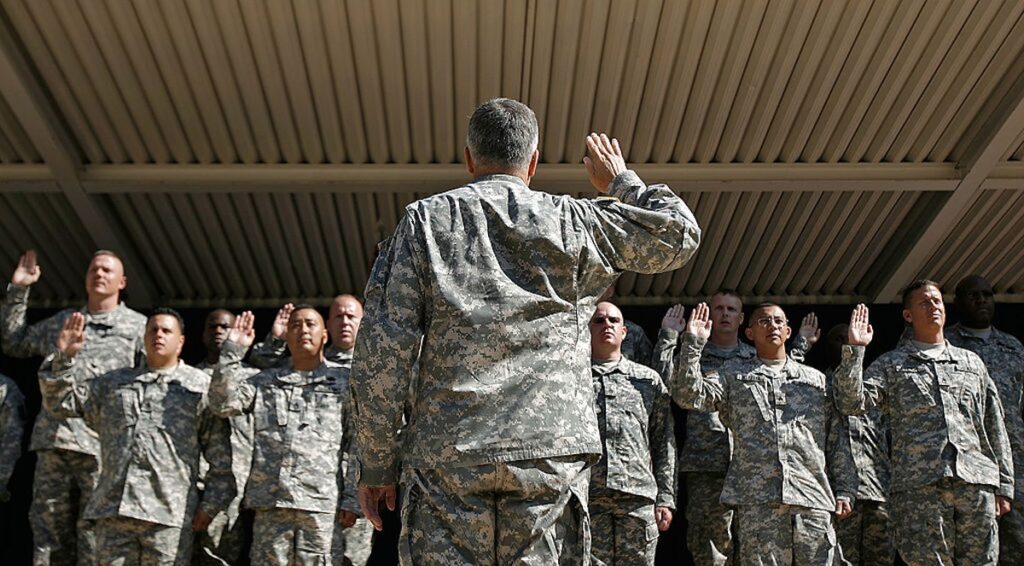Recent data has revealed a significant decline in the number of white recruits joining the United States Army, a trend that has raised concerns among military insiders. According to a Military.com report, white recruits have decreased by 6% from 2022 to 2023 and by double digits since 2018. In stark contrast, the number of black and Hispanic recruits has increased, shifting the demographic balance within the Army.
Army Sees Sharp Decline in White Recruits https://t.co/65yKCtT1jb
— Military.com (@Militarydotcom) January 10, 2024
In 2018, white recruits constituted 56.4% of all Army recruits, a figure that has since plummeted to 44% in 2023. This drop is not just a percentage decline but a substantial fall in real numbers, from 44,042 white recruits in 2018 to only 25,070 in 2023. While the Army’s overall recruiting numbers have diminished during this period, the proportion of non-white recruits has grown.
The Army’s struggle to meet its recruiting goals, including a shortfall in its 2023 target, is attributed to a range of factors. Among these, insiders highlight the increasing partisan criticism of the military’s efforts to incorporate Diversity, Equity, and Inclusion (DEI) policies. This emphasis on “woke” agendas, as some critics label it, has been met with skepticism and disapproval, particularly from conservative media outlets and legislators.
This criticism is seen as a deterrent, particularly to potential white recruits who may view the Army as less appealing than in the past. An Army official suggested that there’s a diminishing sense of prestige associated with military service in some conservative circles. The official noted a cultural shift, indicating that it’s now more socially acceptable to criticize or opt out of military service without facing community backlash.
The Army’s recruitment challenges reflect broader societal trends and debates, including issues like the growing obesity epidemic and an underfunded public education system. However, the sharp decline in white recruits and the perceived politicization of military service are particularly noteworthy. They raise questions about the impact of changing societal values and political discourse on the composition and functioning of the nation’s armed forces.



